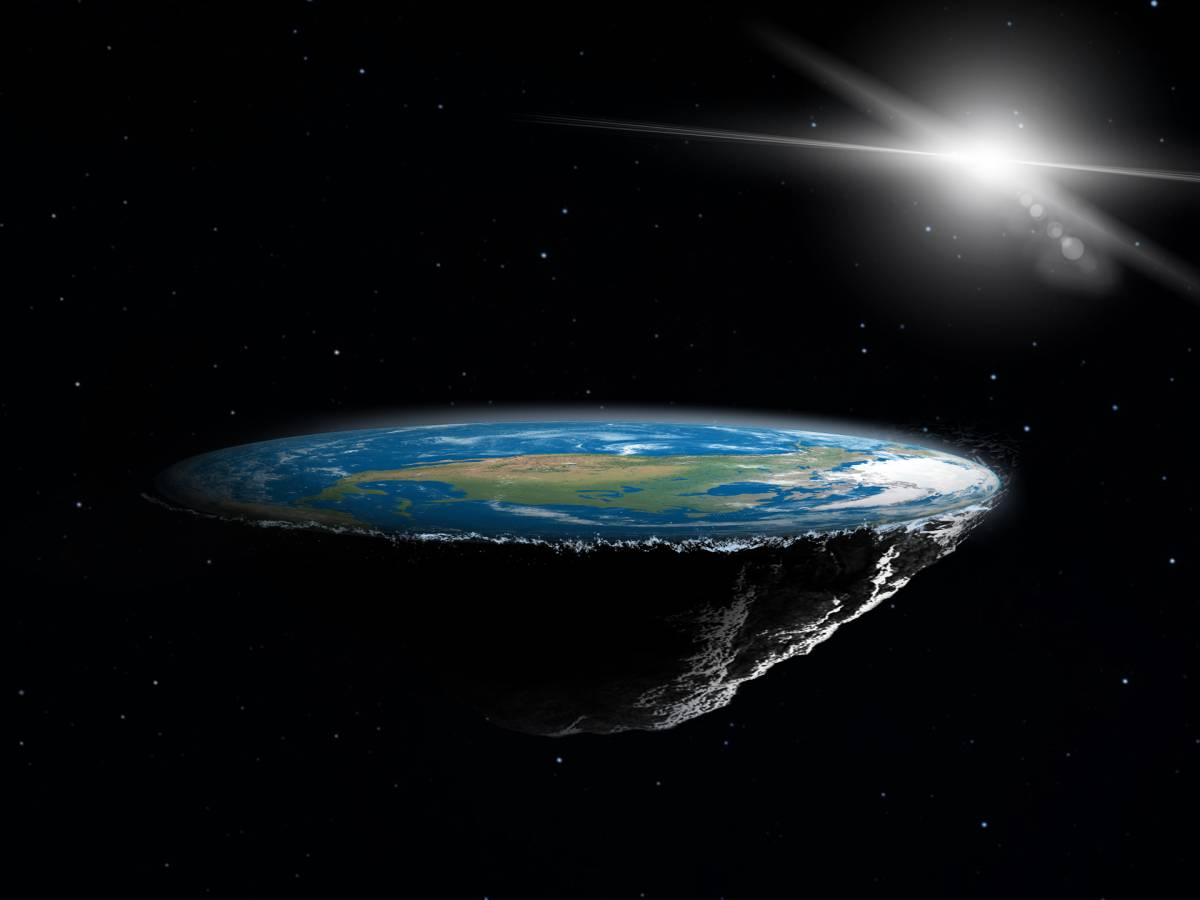Religious Belief Doesn’t Predict Flat Earth Stance
We recently wrote a paper on who is susceptible to flat Earth videos on YouTube. The number one characteristic that makes people more susceptible is their conspiracy ideation; how much they see conspiracies and accept that conspiracies are true.
Many of the flat-earthers we spoke to at the conference told us that one of the reasons they believe in a flat Earth is that they think the Bible should be interpreted literally, and they would quote passages they said were explaining how Earth is actually flat. But in our research study, the intensity with which someone holds religious beliefs or the importance of religion in their daily lives was actually not predictive of being open to flat Earth views.
Scientific Knowledge Protects Against Distorted Thinking
Among people who had stronger conspiracy beliefs, the more science knowledge they had, the less likely they were to believe that Earth was flat or to believe that these videos were presenting good arguments. So scientific knowledge was protective in the conspiracy community against accepting these flat Earth beliefs.
One of the things I thought was so compelling about the flat Earth documentary last year was that the flat earthers designed really fantastic experiments, and of course, they found that the experiments didn’t support the flat Earth worldview. They were upset because they felt like they did something wrong.
Trump and Flat Earth
We definitely have heard from the flat-earthers that they like Donald Trump, but many of them said that they don’t even bother voting. In some cases, they’ll express very liberal views, and in others, very conservative, so it really is a phenomenon that is across the political spectrum.
They like Donald Trump because, to them, he represents somebody who is not part of the political elite coming into that political office. They see Donald Trump as a disruptor as opposed to just another establishment Republican.
How Widespread Is This?
Well, there aren’t, at least as far as we can tell, a very large percentage of people who currently believe Earth is flat, but it is very difficult for us to know. Most of what we know about how many people in the U.S. or abroad believe in flat Earth is based on survey data, but many people who hold conspiracy beliefs and are suspicious of universities and government officials aren’t going to respond to phone surveys.
When Trust Erodes
What belief in flat Earth tells us is how bad it can be when we start to truly distrust other people. We do live in a society that relies on a division of cognitive labor. We talk about this concept of elite, but it’s not that there are people who are elite and people who aren’t, it’s that each of us has our own domain that we are the expert in. I have to take my car to mechanics to have them tell me what’s wrong with it because I have no idea how to do that. My area of expertise is in something completely different.
Everybody has their own area of expertise and their own part to play in society. If we don’t rely on each other, we have this large burden of knowledge that we have to carry around with us, and it’s just not possible for us to be able to do everything. So that’s really the danger that Flat Earth represents: It’s what happens when we stop trusting each other and doubt those areas of expertise.


